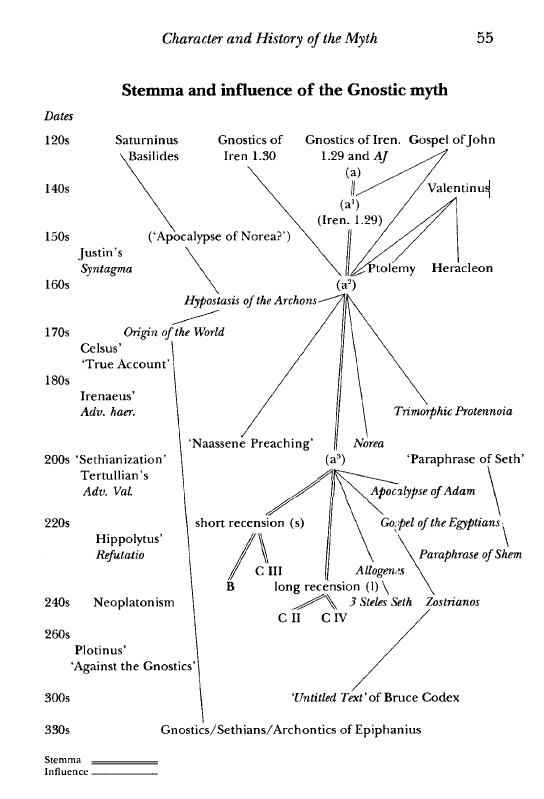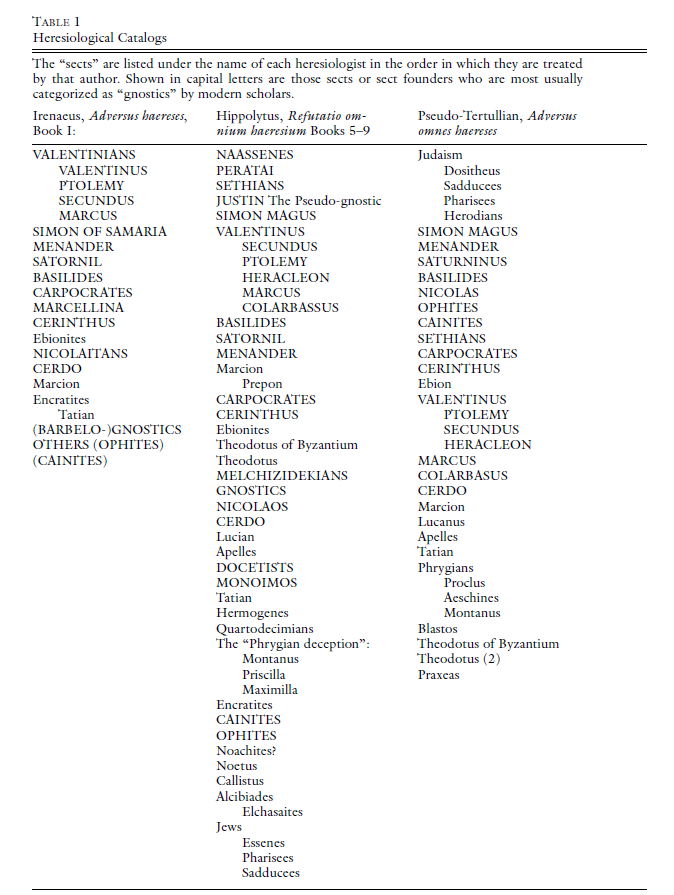MrMacSon wrote: ↑Tue Apr 12, 2016 8:39 pm
Marvin Meyer writes,
"What makes the crucifixion laughable [in Second Discourse of Great Seth 81,15-24] is the ignorance of the powers who think they can execute the real, living Jesus. The mention made of Simon in the text is reminiscent of the role of Simon the Cyrene in the New Testament (Matthew 27:32; Mark 15:21; Luke 23:26), where it is said that he carries the cross for Jesus; --or it may call to mind the observations of Irenaeus (
Against Heresies 1.24.4) and Epiphanius (
Panarion 24.3), who claim that, according to the Gnostic teacher Basilides, Simon of Cyrene was crucified in place of Jesus.
Yet in
the Second Discourse of Great Seth Simon is never actually crucified, and Jesus says that it is 'their man' that the world rulers put to death - the physical body that the heavenly Savior borrowed. Further, the comment by Jesus in
the Second Discourse, 'Though they punished me, I did not die in actuality (
hen outajro) but only in appearance (
hem petouoneh)' (55,16-19), may recall classic formulations of docetic views of the crucifixion, and even the position of the Qur'an, which states (in Sura 4) that the opponents of 'Isa - Jesus - did not kill him for sure, but 'he was made to resemble another for them' or 'they thought they did'."
(
The Nag Hammadi Scriptures, p. 475)
http://www.earlychristianwritings.com/greatseth.html
I think Meyer has misled himself here in saying Simon was not crucified. It's just as likely to mean that 'their man' refers to 'the archons version of Christ' as a concept. So regardless of who was crucified, by attributing to him the traits of their messiah it's as if they put to death their own messiah. Its like saying you who are proclaiming him are the ones who killed him - the Gnostics associated the Pharisees and Roman authorities with archons - the same type of folk who were leaders in the orthodox Christian church to them were archons too. So the writer is drawing no distinction at all between rulers in Judaism, Christianity, Rome or anywhere else.
The Gnostic is saying the man crucified was not really 'your man', but who you made him out to be when really he is the imperishable Christ who can't die even if he takes on a bodily form that is killed.
A further point is the Gnostics readily believed more than one person could take on that form, so even if Jesus is speaking, Simon can just as easily be the one crucified without Jesus ever having a physical body at all
A further point beyond this is not assuming the Gnostic writer had any love for Simon. He's already said earlier in the text he was 'an earthly man' who he 'cast out' and possessed. What if this Simon was not some random stranger but a genuine religious leader? But one they disagreed with
, Simon Magus. The writer then has to grapple with admitting Simon was a Christ bearer, while also undermining him as far as they can. This text does this. Simon Magus also appears to be attacked in the similar Gnostic Apocalypse of Peter which could be from the same Gnostic group
Of course this would make Simon M, really the one known as Jesus in Christianity... but i'm struggling to see this making much difference as we know practically nothing of Simon and the view of him portrayed in early Christianity is obviously confused. If Simon was Jesus then we just know another name for him.

